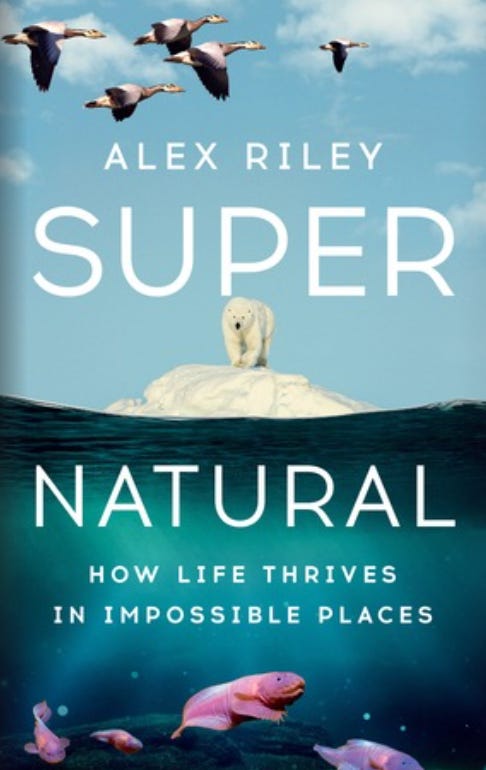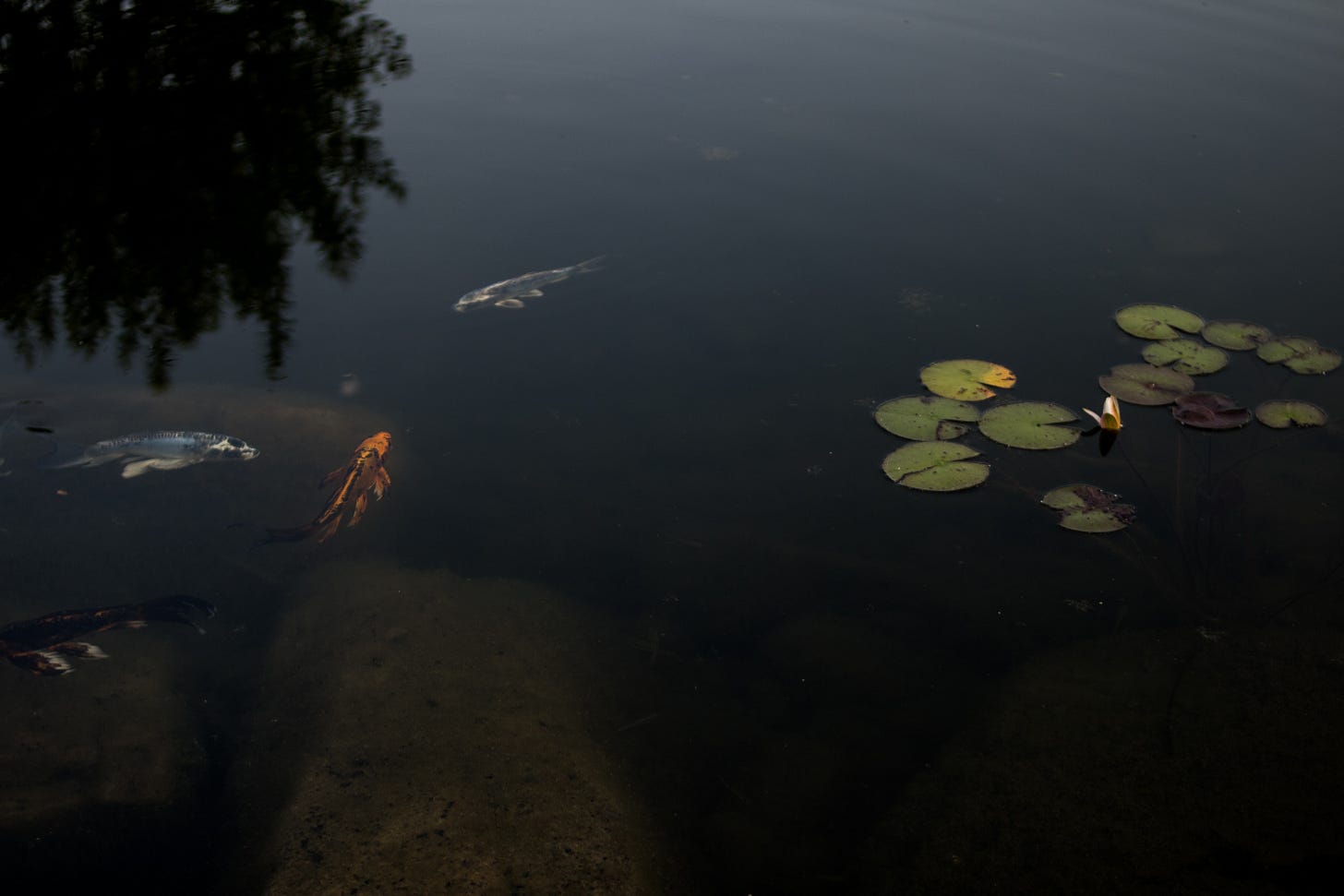A Planet Rife With Life
A review of Alex Riley's Super Natural: How Life Thrives In Impossible Places
Show me someone who says they've found a place on Earth with no life and I'll show you a liar. That is, at least according to Alex Riley's upcoming book, Super Natural: How Life Thrives in Impossible Places, which I was fortunate enough to receive an advanced copy of. Riley's expansive look at the extreme conditions under which many extraordinary species live, and even thrive, reveals the diversity and ingenuity of life on Earth.
It's clear that Riley did the homework here. Traveling across the globe to interview over one hundred scientists, visiting their labs, and learning about their work are things only someone truly dedicated to the science of biology would undertake. And it shows up in the pages of Super Natural. The book is thoroughly researched and yet still widely accessible to non-experts, breaking down extreme conditions into categories of sustenance, environmental conditions, and radiation (solar and otherwise). Riley explores the biological details that allow life to survive in the harshest environments on the planet, while keeping the narrative grounded in the journey of investigative research and the context of what it all means.
One pattern that struck me while reading was the pervasiveness of life. It's virtually impossible to find a place on Earth that isn't inhabited. At the deepest floors of the sea, where there's often no light, little oxygen, sometimes even minimal water due to salt concentrations, there's life. In scorching deserts with scarce moisture, there's life. In the radioactive remnants of the Chernobyl disaster, there's life. Not only is there life in these places, but a diversity of life adapted to thrive in places where most species can't even exist.
If space abhors a vacuum, so too does biology. Ecological niche theory describes how organisms, and broader taxonomic groups, respond to their physical environments. It also entails the degree and characteristics of how organisms interact with each other. Prevailing theory suggests that if a niche exists, life will fill it. Riley's work collects a vast amount of research that strongly supports this notion, but in my opinion, it also suggests something more.
The billionaire class has fully captured legacy media. They often prevent writing like this from being published. Consider becoming a paid subscriber to Brief Ecology, to support independent journalism that’s willing to call out the reality of our ecological and climatological crises, and their causes
Life strives. Life multiplies and diversifies, seeking out and and inhabiting new places. In fact, through the responses and interactions with surrounding environments, organisms often create new niches which can then be subsequently filled by new forms of life. There's an agency latent within the diversity of life, and this agency creates the potential for life to evolve.
Of course, it would be impossible to discuss the ecology of life in Earth's harshest conditions without mentioning the fact that those conditions are changing. Riley has an interesting perspective on the fact that our planet's climate is changing. While recognizing the threat of global climate change, Super Natural argues that life's resilience and creativity are reasons to be hopeful. All the evidence suggests that life is likely very difficult to completely eradicate from the planet. Given the extreme scenarios life can clearly flourish, it’s difficult to imagine one in which some form of life somewhere doesn’t persist. Although the same cannot be said for human life, specifically.
In fact, I think this is Super Natural's shortcoming. Riley neither identifies the economic drivers of global climate change and environmental degradation, nor addresses the full ramifications. For life to remain diverse, and thus resilient, the conditions under which it exists must also be diverse. But capitalism is homogenizing our planet: blanketing it in evermore CO2, systematically removing its forests, paving its countrysides, covering it with industrial agriculture, and polluting every surface with plastics. These factors, I believe, present much greater risks to life on Earth than Riley permits.
Nonetheless, I think Super Natural is a testament to everything about life's existence that's crucial to protect. The secrets to how some of these organisms survive under enormous pressure may hold untapped potential to improve human life. And even if not, our existence is simply richer because of theirs. For that reason, I enjoyed reading this one.




